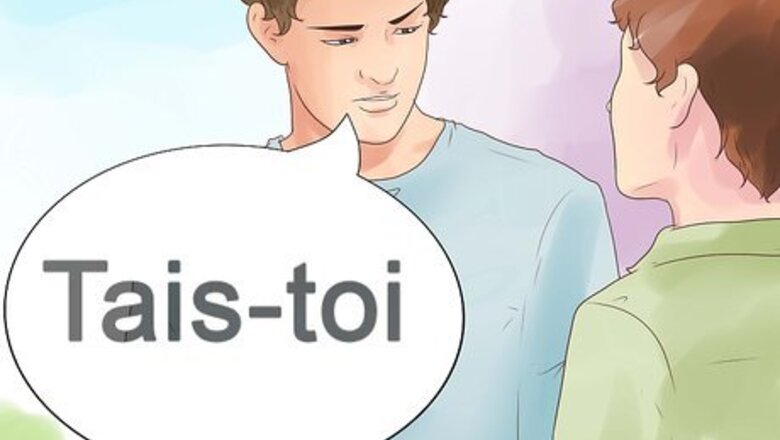
views
Using Not-So-Polite Phrases
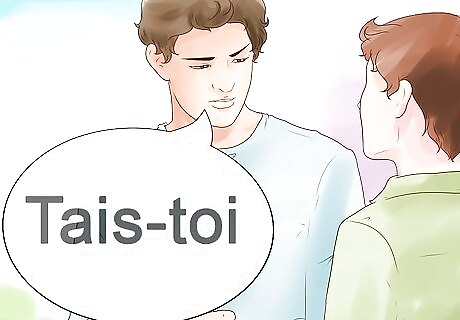
Say "Tais-toi" to tell someone to be quiet. This phrase is pronounced "tay-twah." Use a long ay sound (as in "hay") for "tais" and a short 'o' sound (as in "rock") for "toi." The approximate meaning is "shush" or "hush." This phrase, as well as the other ones in this section, can be considered rude depending on how they're used. "Tais-toi" isn't too offensive, but it's not very polite. It can be outright insulting if you use it angrily or you use it for an authority figure like a parent, teacher, or boss.
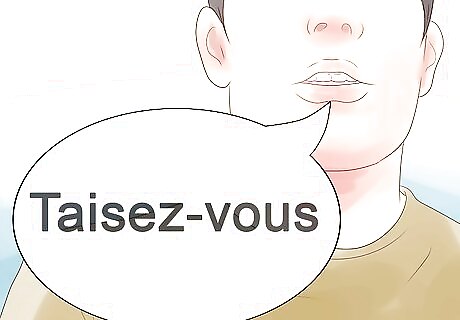
Say "Taisez-vous" as an alternative. This phrase is pronounced "tehzay-voo." Use a long ay sound (as in "hay") for "tais" an 'a'-like sound for "sez", and a long 'u' sound (as in "stool") for "vous." The approximate meaning is "be quiet."Say Shut up in French Step 2 Version 4.jpg This is another moderately rude way to say "shut up" in French. Again, in some contexts it may be used in a friendly way. However, if you say it with a hostile feeling or you use it for someone you should be respectful towards, it will come across as rude. Because this phrase uses the "vous" pronoun, you can use it when you're talking to groups of people as well as single individuals.

Say "Ferme ta bouche" as a rude way to ask someone to shut up. This phrase is pronounced "fairm tah boosh." Use a long a sound (as in "ray") for "ferme." Don't pronounce the final 'e' in "ferme." Use a short o sound (as in "rock") for "ta" and use a long 'u' sound (as in "stool") for "bouche." The meaning of this phrase is "shut your mouth." This phrase is almost always considered rude. The only situations when it might be laughed off is when you are using it jokingly with friends or family.
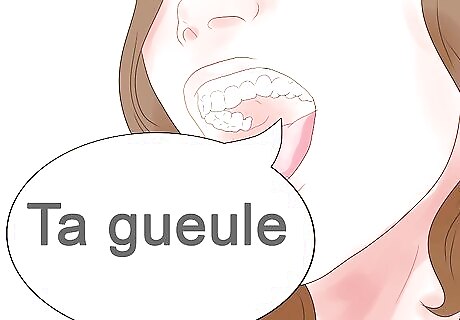
Say "Ta gueule" to very rudely tell someone to shut up. If you're not worried about being offensive, you might try using this crude (but effective) phrase to get someone to shut up. This phrased is pronounced "tah gool." Use a short o sound (as in "rock") for "ta" and a long 'u' sound (as in "stool"). Don't pronounce the final e in "gueule." Be careful with this phrase. This is basically the most insulting way you can tell someone to shut up in French. You may hear good friends use it with each other, but it is not something you will want to use in "polite" company.
Utilizing Politer Alternatives
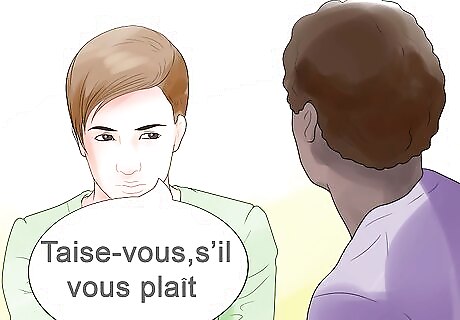
Use "Taisez-vous, s'il vous plaît" to ask someone to please be quiet. This phrase is pronounced "tayzay-voo, seel voo play." Use a long a sound (as in "ray") for "taise" and "plaît," a long L 'u' sound (as in "stool") for "vous," and a long 'e' sound (as in "bee") for "s'il." The approximate meaning is "be quiet, please." Here, notice that we're using the semi-formal "vous" pronoun again. This word is used when you're addressing someone formally (speaking to someone important or older than you). It's also used for speaking to groups of people. If you wanted to say this to someone you're close to, like a friend or family member, you might say "tais-toi, s'il te plaît," ("tay-twah, seel-tuh-play") which is derived from the informal tu pronoun.
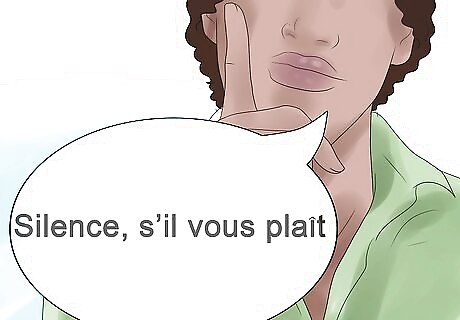
Use "Silence, s'il vous plaît" to call for quiet. "Silence" is spelled the same way as the English word and means the same thing, but its pronunciation is different. This phrase is pronounced "Seelahnce, seel voo play." Use a long 'e' sound (as in "bee") and a short o sound (as in "rock") for "silence." The 'n' in "silence" should be very delicate — just barely articulate it. "S'il vous plaît" is pronounced the same way as above. This phrase is useful for the sorts of situations that you'd use "silence" for in English. For instance, if you're a teacher trying to get the attention of a group of students so that you can begin a demonstration, you might try using this phrase.
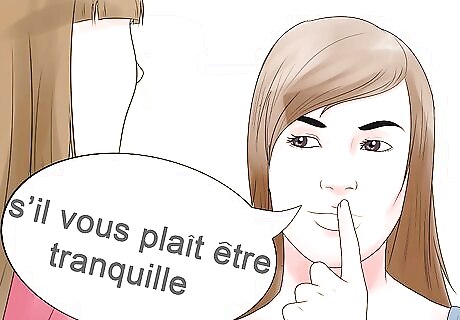
Use "s'il vous plaît SOYEZ tranquille" to ask someone to quiet down. Another way to ask someone to be quiet semi-politely is to use this phrase. This is pronounced "see voo play, swa-yah trhahnkeeluh." "S'il vous plaît" is pronounced the same way as above. Use short e sounds (as in "bed") for both syllables of être. Use a short 'o' sound (as in "rock") and a long 'e' sound (as in "bee") for "tranquille." The approximate meaning is "please make yourself quiet." The French 'r' sound you'll use in this phrase is a little tricky for English-speakers to master. You want to make a very light, "airy" 'r' sound by raising the back of your tongue to the top of your mouth without stopping the flow of air completely. This can take a little practice.
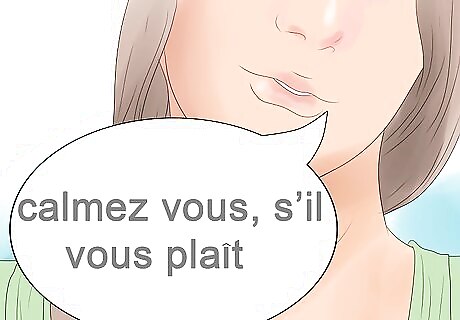
Use "calmez vous, s'il vous plaît" for someone who is too agitated. This phrase is pronounced "calmay-voo, seel voo play." Use a short a sound (as in "apple") for the first syllable of "calmez," then a long a sound (as in "ray") for the second. "Vous" and "s'il vous plaît" are pronounced the same way as above. The approximate meaning is "calm down, please." This phrase is useful when you're trying to get someone to be less loud but you want to avoid directly asking them to be quiet. For instance, if you're at a restaurant and you're worried that you're about to get kicked out because your friend is causing a scene, you might try this.


















Comments
0 comment